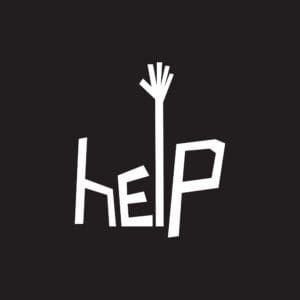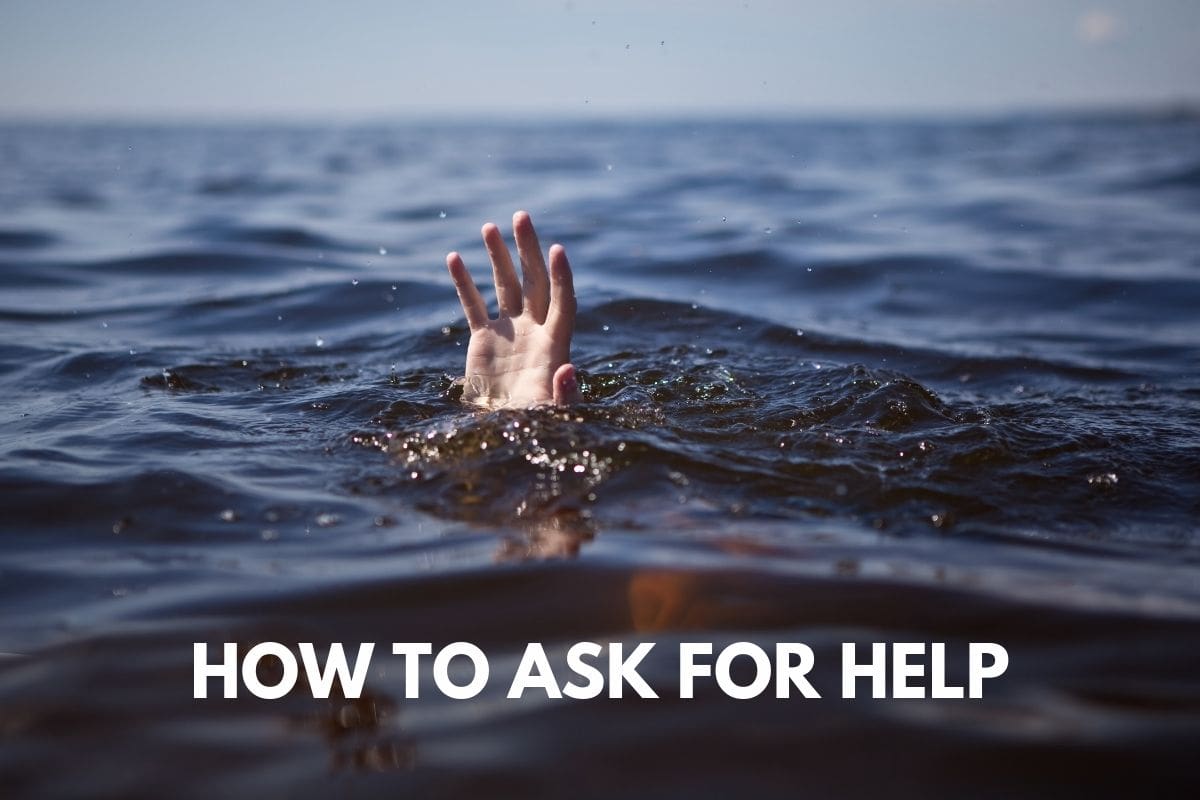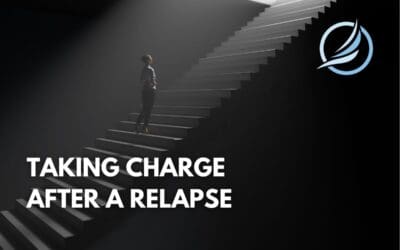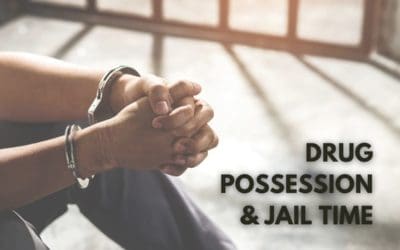According to recent studies, over 23.5 million Americans struggle with some type of substance use disorder (SUD). These individuals need help, whether it be to talk to someone or to receive professional, evidence-based treatment approaches at an addiction treatment center.
If you feel that drugs or alcohol may be taking over your life, you may need to get help. You may be struggling with an addiction. Many people are in the same boat as you. The best thing that you can do for yourself is to actively ask for and look for help. With the right resources, you can achieve long-term recovery. However, asking for help may not be easy. Take a look at this article to learn more about when you should ask for help, how to get help and where you should ask for help from.
When You Should Ask for Help
Many people don’t know when they should ask for help. They may think that their drug use or drinking is not too big a problem, and they may think that they’ll eventually get a handle on the situation. It is never too late or too early to ask for help. If your drug or alcohol use interferes with your life, you should consider asking for help.
However, you really need to ask for help if you’ve noticed that:
- You’ve developed a tolerance to your substance of choice. This means that you need to take larger and larger doses of the drug or you need to drink more in order to feel the effects of the substance. For example, you may need to drink two glasses of wine before you feel it although you used to feel a slight buzz after drinking just one glass of wine.
- You’re physically and chemically dependent on your substance of choice. You don’t feel right if you haven’t drunk any liquor or used any drug for the day. You may also notice that you struggle with withdrawal symptoms when you try to quit.
- The drugs or alcohol is preventing you from living your life or taking care of your responsibilities. Do you neglect household chores or school work? Do you miss work in favor of drinking or using drugs?
- You continue to drink or use drugs even if it causes you severe health problems. This may also be a sign that you are dependent on drugs or alcohol.
If you have ever overdosed before, take it as a sign that you need to get help immediately! An overdose is a sign that your addiction is becoming dangerous and even life-threatening. If you do not seek immediate medical help and attention, you may end up losing your life or facing serious health consequences.

Tips for Asking for Help
Once you’ve noticed that you need help, it’s time to consider how you’re going to go about asking for help. Many addicts don’t get the help that they need because they don’t know how to ask for help. They’re not sure how to put their problems into words. Before you go looking for help, consider the following:
- Be honest about your situation. It’s difficult for people to offer you solid advice if they don’t know what you’re going through. If you downplay the amount of drugs that you’re doing or how much you’re drinking, you may not get the best advice. If you’re talking to an addiction expert, he or she may not be able to gauge or assess the severity of your addiction. When asking for help, be as honest as you can to yourself and to others. It’s time to face your demons. Only then can you begin to heal and recover.
- Write it out if you can’t say it. Some people have a difficult time getting their thoughts together. They may not express themselves well, and may have a hard time communicating with others. If this sounds like you, consider writing a letter instead. This will give you ample time to put your thoughts into words.
Asking for help isn’t difficult, but you’ll need to muster up the courage to do so. You may feel ashamed or embarrassed that you’ve let an alcohol or drug use problem become so big. Just remember that there is no shame in asking for help. In fact, you’re very brave for doing so.
People and Places to Look for Help From
In 2017, Trump declared the opioid epidemic to be a national emergency. Addiction rates are climbing, and more and more Americans are getting hooked on drugs. Although opioids tend to be the drug of choice for most Americans, other substances, like cocaine and methamphetamine, are causing just as much havoc.
To combat the growing addiction rates, the nation as a whole has started to offer more addiction resources. There are many places where a drug or alcohol user can seek help from. Take a look at some of the options available below.

Call a helpline
There are many toll-free helplines that you can call if you ever need help. These helplines usually have addiction experts available 24 hours a day to answer any questions or concerns that you may have. These experts can point you in the right direction for getting help.
Many people also feel more comfortable calling a helpline because they can stay anonymous. They do not need to reveal their identity or meet with anyone. All of the information that they share will also be kept confidential.
If you’re interested in calling a national helpline, consider some of these popular options:
- Alcohol and Drug Referral Helpline at (800) 662-HELP (4357)
- National Council on Alcoholism and Drug Dependence, Inc. (NCADD) at 1 (800) NCA-CALL (622-2255)
- Substance Abuse and Mental Health Services Administration (SAMHSA) National Helpline at 1 (800) 662-HELP (4357)
Don’t forget that many states and cities have their own helplines available for their residents. Check online to see whether there are any recommended helplines that aim to help substance abusers in your local area.
Talk to a Doctor
Don’t hesitate to talk to a medical professional about your problems. If you believe that you may be struggling with a substance use disorder (SUD), talk to a doctor. Doctors will use The Diagnostic and Statistical Manual of Mental Disorders, Fifth Edition (DSM-5) to determine whether you have an addiction. They will also use the diagnostic criteria to assess the severity of the addiction.
Your doctor will not only be able to gauge the severity of your addiction, but he or she can also point you in the right direction. He or she may refer you to an addiction specialist or recommend that you speak to an expert at a drug or alcohol rehab center.
Call a Drug or Alcohol Rehab Facility
The best place to look for help is with a drug or alcohol addiction treatment center, like The Freedom Center. We have the resources and tools to not only assess the severity of the situation but also determine the types of addiction treatment programs that can help those in need recover from an addiction.
The Freedom Center only offers outpatient treatment programs; however, we can refer you to an inpatient clinic should you need a higher level of care. Our addiction experts can also explain to you the difference between the different levels of care so that you know exactly what it is that you need.
Look Online for Help
The internet offers a wealth of information. It can also connect you to people with similar experiences and hobbies. If you suspect that you’re struggling with an addiction, consider looking for help online. Not only will you find a wealth of addiction resources, but you’ll also get the support that you need from other people who have already been in your shoes. You’ll feel less alone, which may be the push that you need to actively look for help.
Don’t Hesitate to Reach Out to The Freedom Center
If you suspect that you may be struggling with an addiction to drugs or alcohol, don’t hesitate to reach out to The Freedom Center. We have addiction specialists available all hours of the day to answer your questions and concerns. We can assess your situation to determine the severity of your addiction and create an individualized treatment plan that will take care of all of your concerns and needs.
Even if you’re not looking to get admitted into a professional rehab program at the moment, we can still point you in the right direction. We can help you find addiction resources in your local area. Our goal is to help you achieve long-term recovery.


































